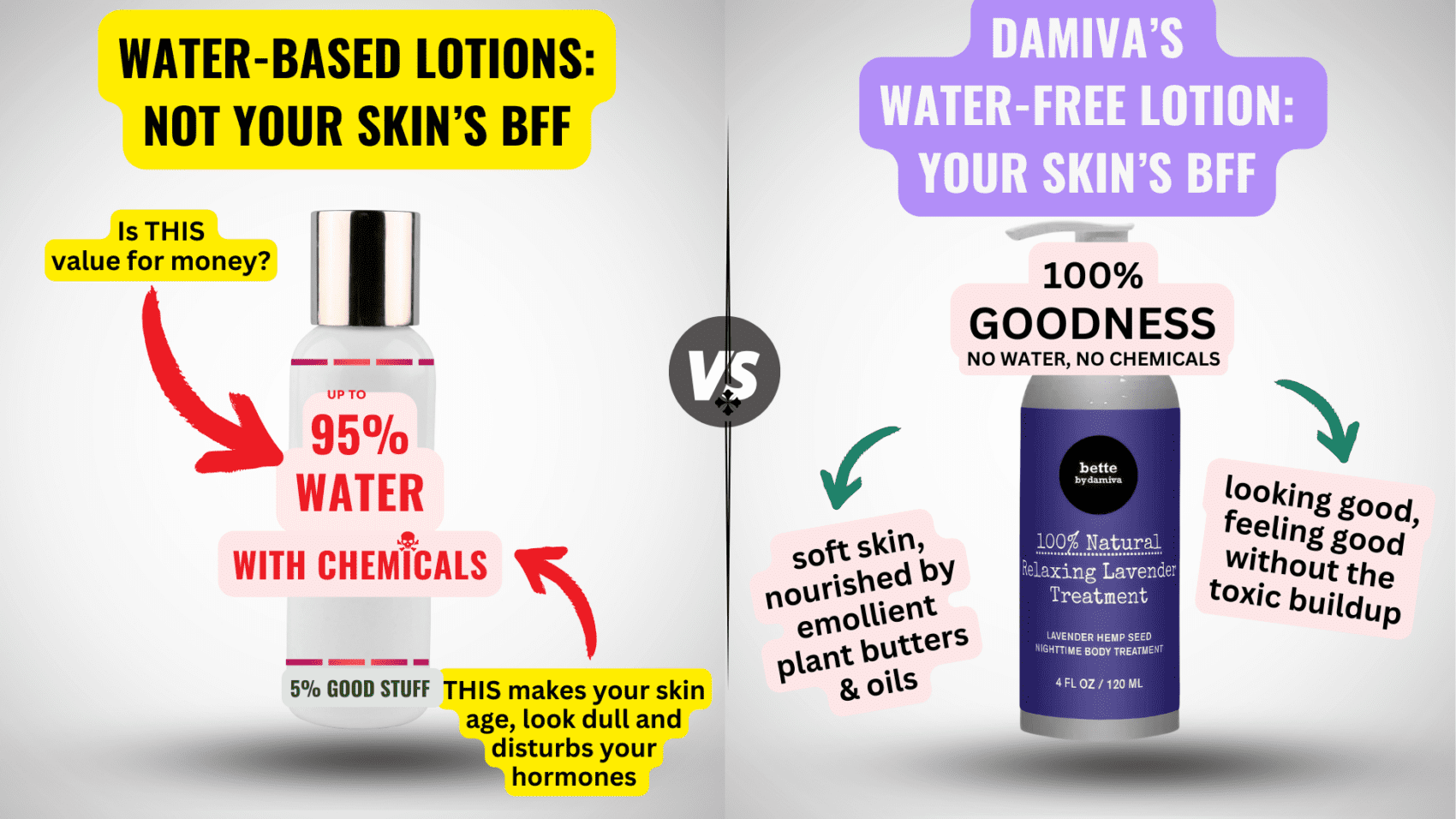Menopause is a natural biological process that marks the end of a woman’s reproductive years. Typically occurring between the ages of 45 and 55, menopause is characterized by the cessation of menstrual cycles for at least 12 consecutive months. This transition signifies the end of the ovaries releasing eggs and producing most of their estrogen, leading to a series of physiological changes and symptoms commonly associated with menopause, such as hot flashes, night sweats, and mood swings. The biological significance of menopause has long intrigued scientists, as it presents an evolutionary puzzle: why would a species evolve to have a significant portion of its members live beyond their reproductive capacity?
Historical perspectives on menopause research
The scientific inquiry into menopause has evolved over the years. Initially, menopause was viewed primarily through a medical lens, with a focus on managing its symptoms. However, as evolutionary biologists began to explore human fertility behavior, menopause became a subject of interest for its unique place in human life history. Unlike most other species, humans have a considerable post-reproductive lifespan, which has led to various theories about the evolutionary advantages this might confer. Historical perspectives on menopause research have ranged from considering it a byproduct of increased human longevity to proposing that it plays a critical role in the survival and success of offspring and subsequent generations.
The intersection of menopause, gender politics, and scientific debate
The study of menopause intersects with gender politics and scientific debate, as societal attitudes towards aging and the role of older women have influenced both the framing of research questions and the interpretation of findings. The question of whether menopause signals a decline in a woman’s perceived sexual attractiveness has been a contentious issue, with some arguing that such views are rooted in ageist and sexist perceptions. Scientific debates have also revolved around the validity of various evolutionary theories, such as the Grandmother Hypothesis, which suggests that post-reproductive women contribute to the fitness of their kin through caregiving and knowledge sharing. As research continues to unravel the complexities of menopause, it becomes increasingly clear that its implications extend beyond biology, touching upon broader themes of social value, gender roles, and the contributions of older women to society.
The Grandmother Hypothesis
Origins and explanation of the grandmother hypothesis
The grandmother hypothesis is an evolutionary theory that seeks to explain why human females typically experience several decades of life post-menopause, a trait that is relatively rare in the animal kingdom. This hypothesis was first suggested by George Williams in 1957 and later expanded upon by researchers such as Kristen Hawkes. It posits that older women contribute to the reproductive success of their kin not through their own fertility, but by providing care and resources to their grandchildren. This intergenerational support is believed to increase the survival and reproductive success of their descendants, thus passing on the genes that favor longevity after fertility has ceased.
Fieldwork evidence supporting the hypothesis
Anthropologist Kristen Hawkes provided a significant boost to the grandmother hypothesis through her fieldwork with the Hadza, a hunter-gatherer tribe in Tanzania. Hawkes observed that post-menopausal women played a crucial role in the tribe by gathering food and helping to raise their grandchildren, thereby improving the children’s survival rates. This division of labor not only included older women but was dependent on them, challenging the traditional “man-the-hunter” model of human evolution and highlighting the importance of grandmothers in societal structures.
Mathematical models and their implications
Mathematical models have been employed to test the validity of the grandmother hypothesis. These models suggest that the contributions of post-menopausal women, while seemingly small, could be significant enough to influence the course of human evolution. The models indicate that the assistance provided by grandmothers in raising their grandchildren could have been a critical factor in the development of a long post-reproductive lifespan in humans. This counters the argument that menopause is merely a by-product of increased longevity or a result of male sexual preferences, instead suggesting a more complex social and evolutionary role for older women.

Alternative Theories and Controversies
Increased Longevity as a By-product Explanation
The phenomenon of menopause has been a subject of scientific curiosity and debate for decades. One alternative theory posits that menopause is simply a by-product of increased human longevity. This theory suggests that as medical advancements have allowed humans to live beyond the years of fertility, menopause has become more apparent. Unlike the Grandmother Hypothesis, which argues that menopause has an evolutionary advantage by allowing women to invest in their grandchildren, the by-product theory implies that menopause is not an adaptation but an artifact of modern life. It is argued that in the past, fewer women lived long enough to experience menopause, and thus, it was not a trait that was selected for or against in the evolutionary process.
The Male Sexual Selection Argument
Another contentious theory is the male sexual selection argument. This perspective suggests that menopause evolved because older men prefer younger women for mating. Younger women are more fertile, and by selecting younger mates, men inadvertently selected for menopause. This theory is controversial as it places the burden of evolutionary change on male preferences and diminishes the role of female agency in the evolutionary process. Critics argue that this theory is overly simplistic and does not account for the complex social structures and mating patterns of early human societies.
Backlash and Criticism of Alternative Theories
The alternative theories of menopause have not been without their critics. The by-product explanation has been criticized for its lack of empirical evidence. Critics point out that many women in hunter-gatherer societies do live past their reproductive years, suggesting that menopause could indeed have an evolutionary purpose. The male sexual selection argument has faced backlash for perpetuating gender biases and failing to consider the full scope of anthropological and biological evidence. It has been suggested that this theory reflects current societal attitudes more than it does the realities of our evolutionary past.
Moreover, these alternative theories have sparked a broader discussion about the role of gender bias in scientific research. Some scholars argue that the framing of menopause as a decline in sexual attractiveness is inherently misogynistic, reflecting societal discomfort with aging women rather than any biological reality. The debate continues as new research and perspectives emerge, challenging the traditional narratives and offering a more nuanced understanding of menopause in the context of human evolution.

THEN IT CONTAINS TOXIC CHEMICALS. WHY RISK IT GETTING SICK? GO CHEMICAL FREE.
Gender Bias in Evolutionary Biology Research
The Role of Female Researchers in Menopause Studies
As the study of menopause has expanded, the influx of female researchers has brought fresh perspectives to the field. Historically, menopause research was predominantly conducted by men, which may have inadvertently shaped the hypotheses and conclusions drawn. The presence of female scientists has not only diversified the research community but also introduced new questions and considerations, challenging the status quo and broadening the scope of menopause studies.
Challenging the Male-Centric Models of Human Evolution
For decades, evolutionary biology has been influenced by male-centric models, often overlooking the roles of women beyond reproduction. The grandmother hypothesis, bolstered by fieldwork from anthropologists like Professor Kristen Hawkes, emphasizes the importance of post-reproductive women in societal roles and survival. This hypothesis challenges the traditional narrative that places men at the center of human evolution, suggesting that the contributions of older women are vital for the cooperative nature of human societies.
The Impact of Gender Bias on Scientific Interpretations
Gender bias in scientific research can lead to skewed interpretations and a narrow understanding of evolutionary processes. Dr. Rebecca Sear’s commentary on the male sexual selection argument highlights how such biases can shape scientific discourse. The controversial paper by Dr. Rama Singh, proposing that men’s preferences for younger women drove the evolution of menopause, sparked significant backlash and debate. This underscores the need for a more nuanced and inclusive approach to evolutionary biology research, one that accounts for both male and female perspectives and contributions.
In conclusion, the role of female researchers in menopause studies has been instrumental in challenging long-standing biases and bringing to light the cooperative and socio-cultural dimensions of human evolution. As the field continues to evolve, it is imperative that gender bias is recognized and addressed to ensure a more comprehensive and accurate understanding of menopause and its place in the evolutionary narrative.
Comparative Analysis of Menopause in Nature
Menopause in humans versus other species
Menopause, the cessation of the menstrual cycle, is a phenomenon that primarily affects human females. Unlike humans, most non-human species do not experience a significant post-reproductive lifespan. In the animal kingdom, the ability to reproduce is typically maintained until the end of life. This stark difference raises questions about the evolutionary advantages of menopause.
In humans, menopause typically occurs between the ages of 45 and 55, marking the end of a woman’s reproductive years. The biological significance of this can be linked to the risks associated with childbirth and pregnancy at an advanced age, as well as the energy demands of raising offspring. Evolutionarily, it may be more advantageous for older women to invest in the survival and well-being of their existing children and grandchildren rather than continuing to bear children themselves.
The unique case of the female killer whale
One of the few non-human species where a form of menopause has been observed is the killer whale (Orcinus orca). Female killer whales typically stop reproducing in their 30s or 40s but can live into their 90s. The grandmother hypothesis is often cited to explain this phenomenon, suggesting that post-reproductive females play a crucial role in the survival of their kin. These older females act as repositories of ecological knowledge, leading their pods to food sources and providing care for their grandchildren, thereby increasing the survival rates of their genetic lineage.
The rarity of post-reproductive lifespan in the animal kingdom
The rarity of a significant post-reproductive lifespan in the animal kingdom suggests that menopause is an evolutionary adaptation unique to a few species, including humans. In most species, reproductive capability is conserved until death, with no equivalent to the human menopause. This rarity has led to various theories and debates about the evolutionary benefits of menopause.
Some scientists argue that menopause in humans may have developed as a by-product of increased longevity, while others believe it may be a result of sexual selection. However, the grandmother hypothesis remains one of the most compelling explanations, supported by evidence from fieldwork and mathematical models that suggest the inclusive fitness benefits of post-reproductive life.
In conclusion, while menopause is a common experience for human females, it is a rare occurrence in nature. The evolutionary reasons for menopause and its rarity among other species continue to be a subject of scientific inquiry and debate.
By the way, something for you, a little gift!!!
I am just in the middle of publishing my book. It’s about How women can balance their hormones. One part is about food and diet, of course.
Follow this link and enter your email.
I will send you this part of the book for free once the book is published. It has many concrete, practical tips and recipes and will help you feel better during menopause or times of Big hormonal fluctuations.
Annette, Damiva Lead for Health & Wellness

Socio-Cultural and Cooperative Aspects of Menopause
The Role of Grandmothers in Traditional Societies
In many traditional societies, grandmothers play a pivotal role in the family and community. They are often the custodians of knowledge, tradition, and culture, passing these on to younger generations. Their experience and wisdom make them invaluable in child-rearing, where they contribute significantly to the upbringing and education of grandchildren. This intergenerational transfer of knowledge and skills is not only a cultural imperative but also a practical one, as it allows parents to engage in other necessary activities, such as food gathering and preparation, knowing that their children are in capable hands.
Inter-generational Cooperation and Conflict
Menopause may also be seen as a biological and social transition that facilitates inter-generational cooperation. As older women step back from childbearing, they often take on roles that support the reproductive success of their offspring. This cooperation can lead to enhanced survival and well-being of grandchildren, effectively strengthening family bonds and ensuring the passage of genes to future generations. However, this shift can also be a source of conflict, as it may challenge existing family dynamics and power structures. The balance between cooperation and conflict is delicate and can be influenced by various factors, including cultural norms, individual personalities, and economic conditions.
Cultural Assumptions and Their Influence on Scientific Perspectives
Cultural assumptions about menopause can significantly influence scientific research and perspectives. In societies where older women are valued for their wisdom and experience, menopause may be viewed positively, as a transition to a respected status. Conversely, in cultures that prioritize youth and fertility, menopause might be seen negatively. These cultural lenses can shape the questions scientists ask, the interpretations of data, and the development of theories. It is crucial for researchers to be aware of these biases and strive for a more nuanced understanding of menopause that encompasses the diverse experiences of women across different cultures.
In conclusion, the socio-cultural and cooperative aspects of menopause highlight the complex interplay between biology, society, and culture. The role of grandmothers in traditional societies underscores the importance of older women in the social fabric. Inter-generational cooperation and conflict reveal the dynamic nature of family relationships during this life stage. Finally, cultural assumptions remind us that our understanding of menopause is deeply rooted in the context of our societal values and beliefs.

Feeling You Have a Right to Safe Beauty & Fem Care?
If so, it may be time for a change. It starts with knowledge. We have a few suggestions in our new guides.
Conclusion: Re-evaluating Menopause in Evolutionary Context
The ongoing debate and the difficulty of proving theories
Menopause remains a subject of intense scientific interest, with theories about its evolutionary significance continuing to spark debate. The challenge in proving any single theory lies in the complex interplay of biological, cultural, and environmental factors that influence human evolution. While the Grandmother Hypothesis offers a compelling argument for the social and cooperative benefits of menopause, alternative theories suggest that menopause may be an unintended consequence of increased longevity or a by-product of male sexual selection preferences. The difficulty in proving these theories is compounded by the need for extensive longitudinal and cross-cultural data, which is often hard to obtain.
The potential for women’s agency in evolutionary narratives
Traditional evolutionary narratives have often downplayed the role of women’s agency, but recent perspectives emphasize the active role women may play in the evolutionary process. Menopause could be seen as a stage where older women exert influence over the social and reproductive dynamics of their communities, thereby shaping the evolutionary trajectory of their kin. This reframing recognizes the importance of women’s choices and actions, beyond their reproductive capacity, in the broader context of human evolution.
Future directions for menopause research
Future research on menopause should adopt a multidisciplinary approach, integrating insights from genetics, anthropology, sociology, and psychology. Studies should focus on understanding the genetic underpinnings of menopause, its impact on intergenerational relationships, and the cultural narratives surrounding aging and female attractiveness. Additionally, there is a need for more empirical research on post-reproductive lifespan in non-human species to contextualize menopause within the animal kingdom. By exploring these avenues, scientists can move closer to unraveling the evolutionary puzzle of menopause and its implications for our understanding of human development.









